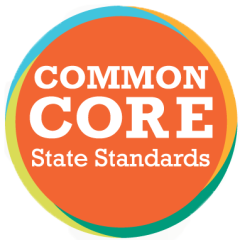 By Tom White
By Tom White
The big news out of Washington DC is the long-delayed rewrite of the odious NCLB bill. The House and Senate have both passed their versions, which means it’s now time for them to reconcile and send something to the president. Either bill will dramatically change the Federal Government’s role in education policy in terms of accountability and testing. But what I’m most concerned with is the status of the Common Core State Standards (CCSS), since both bills prohibit the Federal Government from imposing or even encouraging states to adopt the CCSS.
This represents a sea change. NCLB, which dates back to the Bush Administration, mandated that by 2014, every school had to have every child meet standard or face severe sanctions. The Obama Administration, unable to get Congress to rewrite the law, effectively used those sanctions as leverage to further its own education agenda, by waiving those sanctions to states that enacted certain school reform measures. One of those measures was adopting the CCSS.
Not surprisingly, most states adopted them. Currently, 43 states, plus DC, have aligned their instruction to the CCSS, including Washington. So for the first time ever, most of the states in this country are teaching to the same basic curriculum. A fourth grader in Maine is learning basically the same thing as fourth grader in Hawaii. And that’s a good thing, right?
You would think so. And so would I. But both of us also know that States Rights have a somewhat messy history in this country. And if there’s one right that states are reluctant to give up, it’s what to teach our kids. Which is why a lot of politicians have made a lot of promises to drop the common core.
In the meantime, those of us in the classroom have spent the last three years studying the standards and aligning our curriculum and instruction so that our students will learn them. That explains why my initial reaction was a resounding, “Come on!” But I got over it. In fact, it might actually be a good thing. It’s time to see if the CCSS can stand on their own merit. After all, at some point you have to take off the clamps to see if the glue holds.
And I think it will. I think most states, including ours, will take another look at the CCSS. They’ll get a bunch of educators together in a conference room somewhere and “revisit the standards” to see if they’re “a good fit” for their state.
Three things will become apparent. First of all they’ll notice that the CCSS have a clear vertical alignment. Someone went to a lot of trouble to figure out what students need to know by the time they graduate, and they built those skills gradually from kindergarten on up so that kids will eventually and steadily get to where they need to be.
Secondly, they’ll realize that the CCSS are already broadly in place. Whether it was coerced or not, it doesn’t really matter; the CCSS have been implemented over the last half decade, and we’re now at a place where kids all over the country are basically learning the same thing. Educators, especially those teaching in schools with a highly-mobile population, like it that way.
Finally, they’ll figure out that teachers are not going to react well to a sudden change in standards. There will probably be a teacher in that room, someone like me, who will tell them in no uncertain terms that switching standards at this point in time will not go over well. We’ve come too far to suddenly stop and head off in another direction. It would be one thing if the CCSS were a poorly-written pile of garbage, but they aren’t. The teacher in the room will make it clear that he or she has put a lot of time and energy into aligning her or his instruction to a decent set of standards and is no mood to write it all off merely out of spite.
In the end, the committee will probably make a few superficial changes, like a new labeling system, or maybe moving CCSS.ELA-LITERACY.RL.4.4 from fourth grade to sixth, where it belongs, since it deals with vocabulary that comes from Greek mythology and most sixth graders study Greek civilization, and besides, fourth grade is way too young to deal with Aphrodite and the Island of Lesbos. (Sorry, I had to get that in.)
But by and large, they’ll mostly leave the standards intact. In fact, the biggest decision these committees will face is what to call their “New Standards.” Specifically, they’ll need to decide how much of their state name to use in front of the suffix –core. My money’s on WA-core; it sounds better than either Wash-core or Washing-core. (Teaching to the Ark-core standards, though, almost makes me want to move to Little Rock. Almost.)
So to answer the question posed in my title, the NCLB rewrite will have fairly shallow but very positive effect on the Common Core. Most states will probably take a second look at the standards, like what they see, change the name and move on.
At least I hope so.
Pingback: Dear Charlotte: My Hopes for my Daughter's Educational Inheritance - CORElaborate